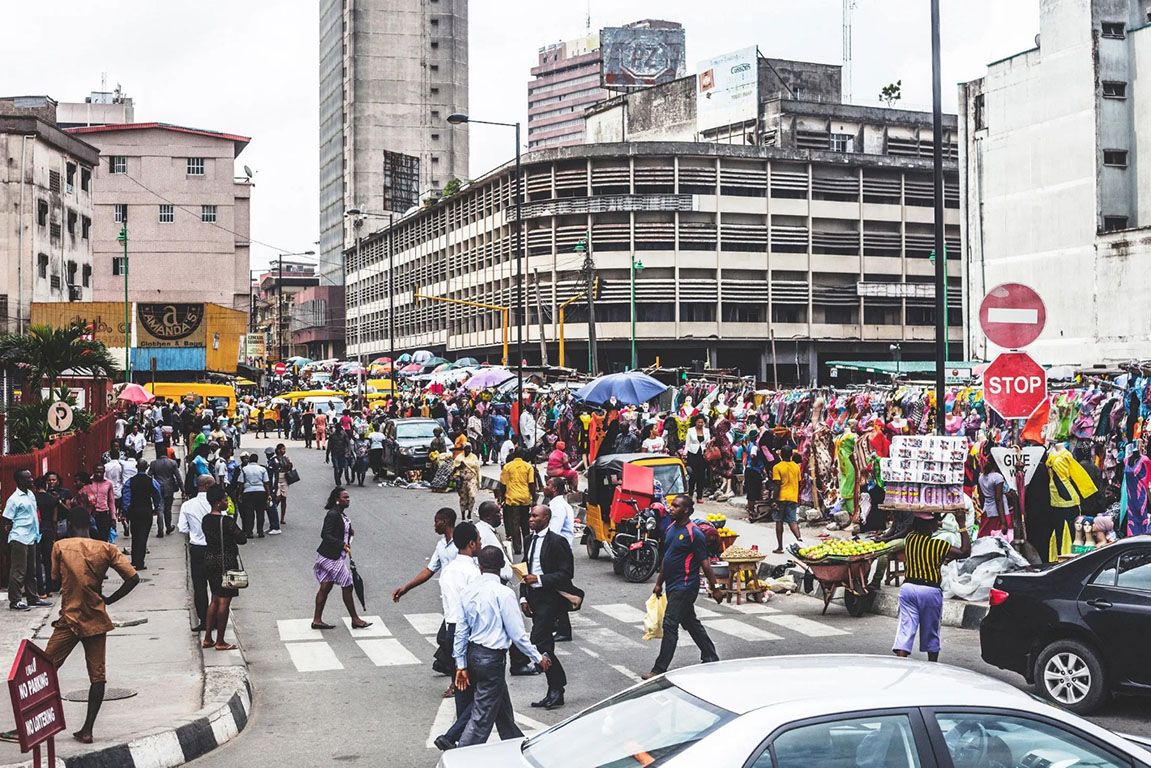Welcome to the gateway of opportunity in West Africa, where the rhythm of entrepreneurship beats in sync with the vibrant tapestry of culture and commerce. Embarking on the journey to start a $1 million business in this dynamic region is akin to navigating a rich mosaic of diversity, innovation, and untapped potential. From the bustling markets of Lagos to the serene shores of Dakar, the entrepreneurial spirit thrives amidst a landscape ripe for transformation and growth.
Here, amidst the hustle and bustle of urban centers and the tranquility of rural landscapes, entrepreneurs dare to dream big, driven by the desire to make a lasting impact on communities and economies alike.
From navigating regulatory landscapes to harnessing the power of innovation, our exploration will unveil the keys to success in this dynamic and ever-evolving entrepreneurial ecosystem. So, prepare to embark on a transformative odyssey where dreams take flight, fortunes are forged, and the spirit of entrepreneurship reigns supreme in West Africa.
1. Identify a niche market
2. Develop a comprehensive business plan
3. Understand legal and regulatory compliance
4. Secure funding
5. Build partnerships Summary
Here, amidst the hustle and bustle of urban centers and the tranquility of rural landscapes, entrepreneurs dare to dream big, driven by the desire to make a lasting impact on communities and economies alike.
From navigating regulatory landscapes to harnessing the power of innovation, our exploration will unveil the keys to success in this dynamic and ever-evolving entrepreneurial ecosystem. So, prepare to embark on a transformative odyssey where dreams take flight, fortunes are forged, and the spirit of entrepreneurship reigns supreme in West Africa.
1. Identify a niche market
2. Develop a comprehensive business plan
3. Understand legal and regulatory compliance
4. Secure funding
5. Build partnerships Summary
1. Identify a niche market

Identifying a niche market in different West African countries requires understanding the unique cultural, economic, and social dynamics of each region.
With Nigeria’s growing population and increasing demand for electricity, there is a niche market for renewable energy solutions such as solar power systems. Providing affordable and reliable solar panels, batteries, and installation services could cater to the needs of both residential and commercial customers, especially in areas with unreliable grid power.
Ghana’s rich cultural heritage and diverse ecosystems make it an ideal destination for eco-tourism. Establishing eco-friendly resorts, guided nature tours, and sustainable travel experiences could appeal to environmentally conscious travelers seeking authentic cultural experiences and immersive adventures in destinations like the Volta Region or Mole National Park.
Senegal has a vibrant fashion scene, and there is a growing demand for sustainable and ethically sourced clothing and accessories. Creating a brand that focuses on using organic fabrics, supporting local artisans, and promoting fair labor practices could tap into this niche market of conscious consumers looking for stylish and eco-friendly fashion options.
Côte d’Ivoire is a major producer of agricultural commodities such as cocoa, coffee, and cashew nuts. There is a niche market for agribusiness technology solutions that improve productivity, efficiency, and sustainability in the agriculture sector. Developing software applications, farm management tools, or agricultural drones could help farmers optimize their operations and increase their yields.
Liberia’s healthcare system faces challenges, and there is a growing awareness of the importance of health and wellness among the population. Launching a business that offers natural and organic health products, supplements, and wellness services could cater to the growing demand for preventive healthcare and holistic wellness solutions in Liberia’s urban centers like Monrovia.
Sierra Leone has a wealth of natural resources, including timber and bamboo, which can be utilized to create eco-friendly home décor products. Designing and manufacturing sustainable furniture, home accessories, and interior design solutions using locally sourced materials could appeal to environmentally conscious consumers looking to furnish their homes in a stylish and sustainable manner.
The key is to identify market gaps, understand consumer preferences, and tailor your business idea to meet the specific needs and demands of the target market in each country. Conducting thorough market research and engaging with local communities will help you identify viable niche opportunities for your business venture.
With Nigeria’s growing population and increasing demand for electricity, there is a niche market for renewable energy solutions such as solar power systems. Providing affordable and reliable solar panels, batteries, and installation services could cater to the needs of both residential and commercial customers, especially in areas with unreliable grid power.
Ghana’s rich cultural heritage and diverse ecosystems make it an ideal destination for eco-tourism. Establishing eco-friendly resorts, guided nature tours, and sustainable travel experiences could appeal to environmentally conscious travelers seeking authentic cultural experiences and immersive adventures in destinations like the Volta Region or Mole National Park.
Senegal has a vibrant fashion scene, and there is a growing demand for sustainable and ethically sourced clothing and accessories. Creating a brand that focuses on using organic fabrics, supporting local artisans, and promoting fair labor practices could tap into this niche market of conscious consumers looking for stylish and eco-friendly fashion options.
Côte d’Ivoire is a major producer of agricultural commodities such as cocoa, coffee, and cashew nuts. There is a niche market for agribusiness technology solutions that improve productivity, efficiency, and sustainability in the agriculture sector. Developing software applications, farm management tools, or agricultural drones could help farmers optimize their operations and increase their yields.
Liberia’s healthcare system faces challenges, and there is a growing awareness of the importance of health and wellness among the population. Launching a business that offers natural and organic health products, supplements, and wellness services could cater to the growing demand for preventive healthcare and holistic wellness solutions in Liberia’s urban centers like Monrovia.
Sierra Leone has a wealth of natural resources, including timber and bamboo, which can be utilized to create eco-friendly home décor products. Designing and manufacturing sustainable furniture, home accessories, and interior design solutions using locally sourced materials could appeal to environmentally conscious consumers looking to furnish their homes in a stylish and sustainable manner.
The key is to identify market gaps, understand consumer preferences, and tailor your business idea to meet the specific needs and demands of the target market in each country. Conducting thorough market research and engaging with local communities will help you identify viable niche opportunities for your business venture.
2. Develop a comprehensive business plan
Developing a comprehensive business plan is crucial for the success of any business venture, including starting a $1 million business in West Africa. Here’s a more detailed breakdown of what should be included in your business plan:
- Executive Summary:
- Business Description:
- Competitive Analysis:
- Operational Plan:
- Financial Projections:
3. Understand legal and regulatory compliance
Each country in the region has its own set of laws, regulations, and administrative procedures that govern business activities. Here’s a more detailed explanation of the key aspects to consider:
- Business Registration:
- Tax Obligations:
- Employment Regulations:
- Import and Export Regulations:
- Intellectual Property Protection:
- Contractual Agreements:
4. Secure funding
Securing funding for a $1 million business venture in different West African countries involves navigating unique financial landscapes and leveraging diverse funding sources tailored to each market.
In Nigeria, Africa’s largest economy, you can tap into a burgeoning venture capital ecosystem, supported by angel investors, private equity firms, and government-backed initiatives like the Central Bank of Nigeria’s Entrepreneurship Development Fund.
Ghana offers access to microfinance institutions, development finance institutions, and government grants, alongside a growing angel investment network and vibrant crowdfunding platforms. In Senegal, you’ll find a thriving entrepreneurial ecosystem fueled by incubators, accelerators, and impact investors focused on sectors like agriculture, renewable energy, and technology. In Côte d’Ivoire, you can access financing through banking institutions, SME-focused funds, and government-sponsored initiatives like the National Fund for Support and Development of SMEs.
Liberia presents opportunities for grant funding from international donors and NGOs, complemented by support from development finance institutions and impact investors. By understanding the funding landscape in each West African country, you can leverage a mix of local and international funding sources to secure the capital needed to launch and grow your $1 million business, driving economic development and innovation across the region.
In Nigeria, Africa’s largest economy, you can tap into a burgeoning venture capital ecosystem, supported by angel investors, private equity firms, and government-backed initiatives like the Central Bank of Nigeria’s Entrepreneurship Development Fund.
Ghana offers access to microfinance institutions, development finance institutions, and government grants, alongside a growing angel investment network and vibrant crowdfunding platforms. In Senegal, you’ll find a thriving entrepreneurial ecosystem fueled by incubators, accelerators, and impact investors focused on sectors like agriculture, renewable energy, and technology. In Côte d’Ivoire, you can access financing through banking institutions, SME-focused funds, and government-sponsored initiatives like the National Fund for Support and Development of SMEs.
Liberia presents opportunities for grant funding from international donors and NGOs, complemented by support from development finance institutions and impact investors. By understanding the funding landscape in each West African country, you can leverage a mix of local and international funding sources to secure the capital needed to launch and grow your $1 million business, driving economic development and innovation across the region.
5. Build partnerships
In starting a $1 million business in West Africa, building partnerships is crucial for leveraging resources, expertise, and market opportunities. You can forge alliances with local suppliers, distributors, and industry associations to gain insights into market dynamics and regulatory landscapes.
Collaborating with established businesses or government agencies can help you navigate bureaucratic hurdles and gain credibility within the community. Moreover, partnering with NGOs, research institutions, and community organizations can support social impact initiatives and enhance your brand reputation.
Collaborating with established businesses or government agencies can help you navigate bureaucratic hurdles and gain credibility within the community. Moreover, partnering with NGOs, research institutions, and community organizations can support social impact initiatives and enhance your brand reputation.
Summary
Starting a $1 million business in West Africa requires dedication, perseverance, and strategic planning. By Identifying a niche market, developing a comprehensive business plan, understanding legal and regulatory compliance, securing fund, building partnerships and remaining agile in your approach, you can increase your chances of success in the dynamic and diverse business landscape of West Africa.

















